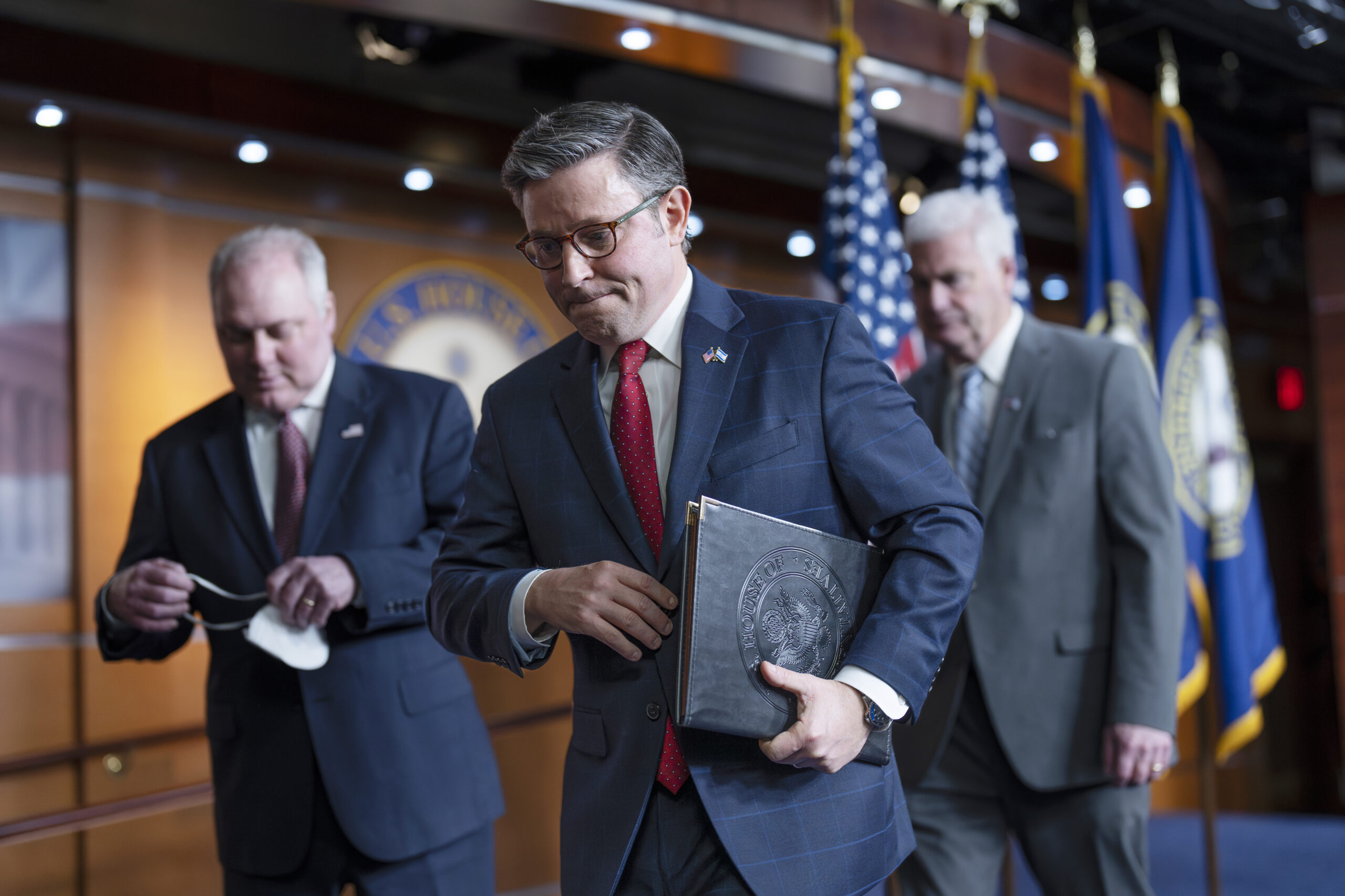

Conservative members of the House Freedom Caucus are coming out hard against the top-line spending agreement reached between Speaker Mike Johnson (R-LA) and the Senate, claiming he sold them out and that the agreement doesn’t go far enough.
The agreement, released Sunday, will provide for the $1.59 trillion number set in the Fiscal Responsibility Act passed last year; this includes $886 billion for defense and $704 billion for nondefense spending.
But while members of the Freedom Caucus previously said they would agree to the funding levels set in the legislation, they claim this plan actually funds the government above that agreed-upon number, arguing that the unwritten side deals made between House and Senate leadership fund government beyond the $1.59 trillion.
“The speaker’s office and everyone in town are trying to sell everybody a bill of goods. It’s not true,” Rep. Chip Roy (R-TX) told the Washington Examiner. “The top line number for the overall size and scope of the government will be $1.659 trillion.”
During these negotiations, House Republicans did receive $16 billion in additional spending cuts to “offset the discretionary spending levels,” Johnson said in a letter to members about the agreement.
“Those side deals were a part of the prior agreement, so they’re not new; they’ve been offset thanks to the hard work and negotiations of the speaker,” a senior GOP leadership aide told the Washington Examiner.
Johnson quickly learned that as a speaker, he can’t make everyone happy, and that seems to be the case with just about every piece of legislation he’s had to pass.
He acknowledged that in the letter he sent to members, saying that he knows the “levels will not satisfy everyone, and they do not cut as much spending as many of us would like” but it does “1) move the process forward; 2) reprioritize funding within the topline towards conservative objectives, instead of last year’s Schumer-Pelosi omnibus; and 3) fight for the important policy riders included in our House FY24 bills.”
But this is not the first time Johnson has enraged hard-line conservatives.
He did so with the continuing resolution he passed in November, shortly after he became speaker. He angered them again when he passed the National Defense Authorization Act, and he is frustrating them again with this new top-line spending agreement.
“[They said,] ‘Just take the CR. Don’t worry. We’ll fight on the NDAA.’ And then they stick it to us on the NDAA,” Roy said. “They say, ‘You got to accept this FISA extension and watered down almost all of the riders in the NDAA, but don’t worry about it; we’ll fight on spending.’ Well, now we’re taking it on the chin on spending, and they’re saying, ‘Don’t worry. Trust us. We’ll fight on the border and Ukraine.’ Bullcrap.”
Roy described the conservative flank’s stark distrust of Johnson and the House leader. Republicans have to have some “real sober conversations about the state of the House GOP,” he said.
“Let’s just say there’s a lot of conversations underway right now about our complete lack of confidence now and where the Republican leadership is,” Roy said.
When asked if he was referring to conversations about a motion to vacate and remove Johnson as speaker, Roy wouldn’t say.
“We’re just having the conversations we need to have about this continued failure theater,” he said in response to the question.
Roy’s position is shared among hard-line conservatives and Freedom Caucus members across the conference.
On Sunday, shortly after the top-line agreement was released, the Freedom Caucus put out a social media post calling the agreement a “total failure,” and Rep. Bob Good (R-VA), the chairman of the Freedom Caucus, said on X, “at some point, having the House majority has to matter. Stop funding this spending with an open border!”
CLICK HERE TO READ MORE FROM THE WASHINGTON EXAMINER
With all the dissent from Republicans, there are not enough votes to pass the rule on appropriations bills because conservatives would likely block it on the floor, so odds are likely that any bills would have to go up under suspension of the rules, meaning it would require a two-thirds majority to pass, but leadership would avoid a rule failure.
“We’re going to have to start calling it the suspension speakership,” Roy said.






